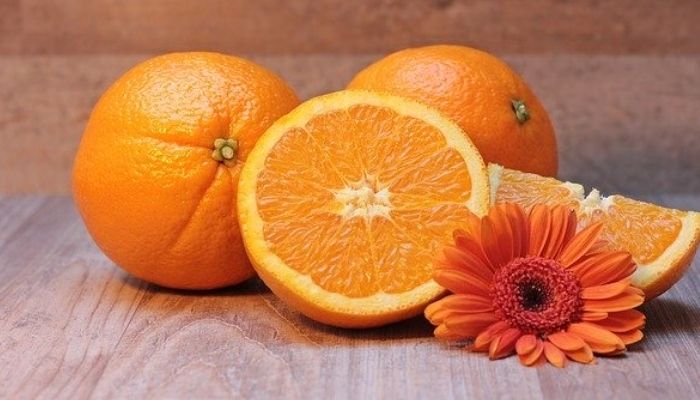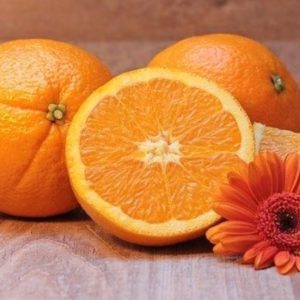The orange fruit is a subtropical citrus tree known for its sweet, sour fruit, and for being an evergreen. It is native to southern China, South India, and the Mediterranean basin; the fruit of the orange tree is consumed fresh while the rind (peel) is used in cooking and juices. People eat oranges raw or cooked into desserts or drink juice while some kinds of oranges can be peeled into segments and eaten like an orange.
Orange fruit is an antioxidant that may help prevent certain types of cancers. It also promotes cardiovascular health and may even help improve vision, digestion, and iron absorption. It’s also one of the richest natural sources of vitamin C. But the question arises: How long do oranges last?
How long do oranges last:
How long oranges last depends on a variety of factors, such as the best-before date, the conditions they’re stored in, and how fresh they were, to begin with. With proper care, an orange can last days.
Oranges in good or bad condition:
Oranges come in different conditions. Some are firm, while others are soft and ripe. During fruit break, when you pick oranges and suddenly a question pops up: Are my oranges in good condition? How long do oranges last? So here are a few tips we need to keep in mind:
Texture: Oranges become soft and mussy type when they start to spoil.
Color: The color might get changed. They can have darker or lighter patches or spots on their skin.
Molds: When oranges get spoiled they have developed the surface of a mold.
Odor: while or after peeling oranges we may get a sour, fermented odor, which indicates they have got rotten.
Taste: If we haven’t got any signs then we can taste a small part of oranges to check if they are good to consume, if their taste changes then we must dispose of them.

Self-Life of oranges:
The shelf life of oranges varies widely. Three factors determine how long they last: product, packaging, and storage conditions. The shelf life of oranges at home is typically between one and two weeks; while the shelf life for oranges in commercial storage is usually longer, 2-3 months.
Depending on their variety and stage of ripeness, oranges will vary in durability. At home, the easiest way to extend their life is by refrigerating them and tightly covering or sealing them in a plastic bag. Or keep them in a cool, dry place, with no moisture and humidity.
Storage of oranges:
Citrus will remain fresh and ready to eat for a longer period in perforated or porous bags versus air-tight storage. When placing skinned citrus in air-tight storage, wrap the fruit in paper towels before placing it in a plastic bag. This is because when citrus is left unwrapped in air-tight conditions, they begin to exude oils that might become rancid and will affect the rest of the contents of your storage unit.
We can peel and deseed oranges and store them in an air-tight container. But the oranges if peeled must be consumed as early as possible as they may tend to dry out, consuming fresh fruits provides more vitamins and nutrients than the preserved for long days. Because oranges are very susceptible to ethylene gas, store them away from apples, bananas, pears, and other fruits that produce this gas.
We can also extract orange juice or make the orange syrup, pulp, jam, etc store it as it can be an alternative for extending its shelf life.
Oranges Recipes:
Oranges are juicy, soft, and sweet fruit with high contents of vitamin C and other nutrients such as fiber and folate. Oranges are multi-purpose fruit. They are not only used for fresh eating but also for cooking. With their distinct sweet and tart taste, they can be used in several desserts or fruit salads to give it that extra flavor you were craving for!
We can use oranges as a whole and waste nothing. The orange zest can be used for dressing or garnishing in salads or desserts. The slice of oranges can be used in salads, topping on drinks, and eaten solely, in pies, cakes, etc. orange peel or skin can be used as a garnishing item for drinks, and dry peel can be used as a powder in a skincare routine.
Orange juice can be consumed or mixed with drinks, and used in cakes, pies, and bread. Orange pulp can be used for making candies, and bars, and it can be paired with chocolates, cooking seafood, or non-veg. Sorbets, icecreams, mixed drinks, cocktails, cookies, wraps, sauce, etc. There are numerous ways we can use oranges to enhance our taste.
What if oranges expire?
Even if oranges expire we can still use them, not for consumption but other purposes like cleaning, scrubbing, infuser, etc. We can grind peels and use them as cleansers or body scrubs, we can infuse them with honey used as an infuser, and orange peel can also be used in a face pack.
We can extract oils from peels mixed with alcohol and use them as an oil extract, as an odor remover, cleanser as grinds combined with vinegar. Also used in herbal tea, exfoliator, compost for plants, etc.
Verdict:
Oranges are sweet, flavourful fruits that many people love to eat. They are also known as excellent food sources when you’re trying to lose weight. Oranges are highly nutritious because it is a rich source of vitamin C along with other important nutrients including folate, copper, potassium, manganese, thiamine, and vitamin B6. It is also a good source of fiber, vitamin A, and beta-carotene. They contain a lot of healthy nutrients and antioxidants.
Hence, it’s always recommended to consume fresh fruits to gain more nutrients. Hope you find this article useful and that you got an answer to your question about how long oranges last.
Read More: Could there be a difference between Key Lime and Lime?

